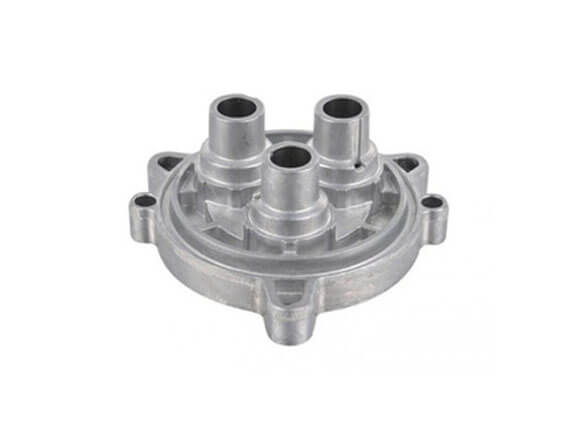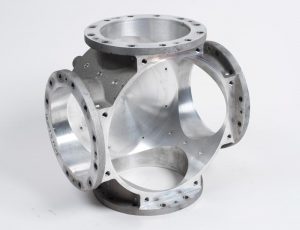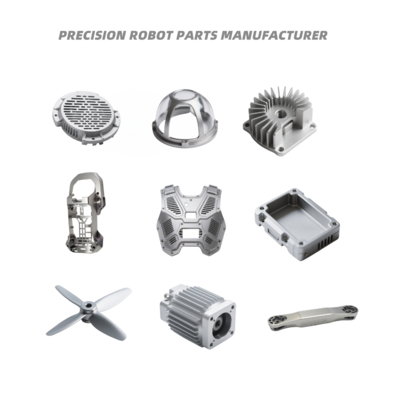The Role of Aluminum Foundries beforehand Lightweight Production Solutions
Aluminum shops significantly add to the development of lightweight production options. Their ingenious casting modern technologies produce high-strength, lightweight components important for sectors such as automotive and aerospace. This improvement not only improves product efficiency yet also promotes sustainability with making use of recycled products. As these factories adjust to arising innovations and techniques, they lead the way for future developments in producing efficiency and environmental obligation. What lies ahead in this transformative trip?
The Benefits of Lightweight Products in Manufacturing
As markets progressively look for performance and sustainability, the fostering of lightweight products in production has actually arised as a crucial approach - Aluminum Casting Company. These products, especially light weight aluminum and composites, supply many advantages that boost manufacturing processes and product performance. Primarily, their reduced weight contributes to decrease power intake throughout transportation and procedure, leading to significant expense financial savings
Moreover, light-weight materials assist in the design of more complex geometries, enabling for higher development in product advancement. This versatility often leads to enhanced performance and performance, dealing with the evolving needs of modern-day customers.
In addition, making use of light-weight products can improve the longevity of products because of their resistance to deterioration and fatigue. This longevity not only lowers maintenance expenses however also supports sustainability campaigns, as longer-lasting items add to less waste. To sum up, the benefits of light-weight materials are essential in driving performance, advancement, and environmental duty in production.
Advancements in Aluminum Spreading Technologies
Current developments in aluminum casting innovations are changing the production landscape, specifically in the production of lightweight components. Innovations such as high-pressure die spreading and vacuum cleaner pass away spreading have considerably enhanced the accuracy and surface area coating of light weight aluminum parts - Aluminum Foundry. These approaches permit the creation of complicated geometries while decreasing product waste and improving mechanical homes

In addition, the implementation of real-time surveillance systems ensures quality assurance throughout the casting process, causing more constant product outcomes. Jointly, these innovations not just boost the performance of light weight aluminum parts yet likewise sustain the industry's change towards even more lasting manufacturing practices.
Applications of Aluminum Parts in Numerous Industries
While light weight aluminum components have long been utilized in different industries, their adaptability and lightweight buildings remain to drive cutting-edge applications across sectors such as auto, aerospace, and construction. In the vehicle industry, light weight aluminum is increasingly made use of for engine blocks, wheels, and body panels, improving fuel effectiveness and performance. Aerospace producers take advantage of aluminum for aircraft structures and components, taking advantage of on its strength-to-weight ratio to improve fuel economic climate and haul capability.
In the construction sector, aluminum is preferred for window structures, roof covering, and structural aspects, providing longevity and resistance to rust while lowering total structure weight. In addition, the electrical and electronics sectors benefit from light weight aluminum's conductivity and light-weight nature, using it in electrical wiring, units, and heat sinks. These varied applications highlight the critical role of aluminum components, which not only meet market demands but additionally add to improvements in product design and capability throughout numerous fields.
Sustainability and Energy Efficiency in Light Weight Aluminum Foundries
The aluminum factory sector plays a critical duty in advertising sustainability and energy efficiency, especially as need for light-weight components continues to grow across numerous markets. Shops are increasingly adopting ecologically pleasant website here practices, such as using recycled aluminum, which significantly minimizes power intake and greenhouse gas exhausts compared to primary aluminum manufacturing.
Additionally, advancements in casting technologies improve power effectiveness by enhancing the melting processes and decreasing waste. Techniques like die spreading and financial investment casting enable for precise product usage, reducing excess and scrap.
Additionally, lots of shops are spending in eco-friendly energy resources to power procedures, even more decreasing their carbon footprint. Implementing energy administration systems makes it possible for foundries to keep track of and enhance energy usage, guaranteeing they run at peak performance.

Future Patterns in Lightweight Production Solutions
Exactly how will emerging technologies shape the future of light-weight manufacturing services? Innovations such as sophisticated materials, automation, and additive production are established to redefine manufacturing procedures. The combination of smart production innovations, including the Web of Points (IoT) and expert system (AI), will certainly allow real-time surveillance and optimization, improving effectiveness and minimizing waste.

As sustainability remains to be a critical concern, light-weight options will increasingly concentrate on reusing and recycling products, aligning with round economic climate concepts. This advancement in lightweight manufacturing will not only boost item efficiency however additionally add to environmental objectives, guaranteeing that the sector continues to be affordable in a swiftly altering market landscape.
Often Asked Inquiries
Exactly How Do Aluminum Foundries Ensure Quality Control in Production?
Light weight aluminum factories guarantee top quality control in manufacturing through strenuous screening, standardized treatments, and constant monitoring - aluminum casting. They implement proficient personnel and innovative technologies to keep uniformity, reduce defects, and satisfy industry requirements throughout the production process
What Are the Main Challenges Dealt With by Aluminum Foundries?
Light weight aluminum foundries encounter difficulties such as fluctuating resources expenses, maintaining production efficiency, making sure consistent high quality, click adjusting to technical innovations, and meeting environmental laws, every one of which influence their general functional performance and competitiveness on the market.
Just How Does Aluminum Recycling Effect Shop Procedures?
Light weight aluminum reusing considerably enhances foundry operations by decreasing resources costs, lessening power usage, and decreasing ecological influence. This lasting practice enables foundries to boost efficiency while fulfilling boosting demand for lightweight, high-performance aluminum products.
What Skills Are Needed for Employees in Aluminum Foundries?
Workers in light weight aluminum shops need skills in metallurgy, machining, quality assurance, and safety practices. Efficiency in running machinery, understanding alloy buildings, and analytical are also vital for effective production and maintaining high security requirements.
How Do Aluminum Foundries Deal With Waste Management?
Light weight aluminum shops take care of waste via recycling scrap steel, utilizing efficient waste partition techniques, and sticking to ecological guidelines. They implement lasting practices to minimize landfill payments, guaranteeing that unsafe products are taken care of properly.
Light weight aluminum factories significantly contribute to the advancement of light-weight production options. Current developments in light weight aluminum casting modern technologies are transforming the production landscape, particularly in the manufacturing of light-weight components. While aluminum blog here parts have long been utilized in various markets, their adaptability and light-weight residential or commercial properties continue to drive cutting-edge applications across fields such as vehicle, aerospace, and construction. In addition, the electrical and electronics markets benefit from aluminum's conductivity and light-weight nature, using it in wiring, enclosures, and warm sinks. The light weight aluminum factory industry plays an essential duty in advertising sustainability and energy effectiveness, specifically as need for light-weight components continues to grow across numerous sectors.